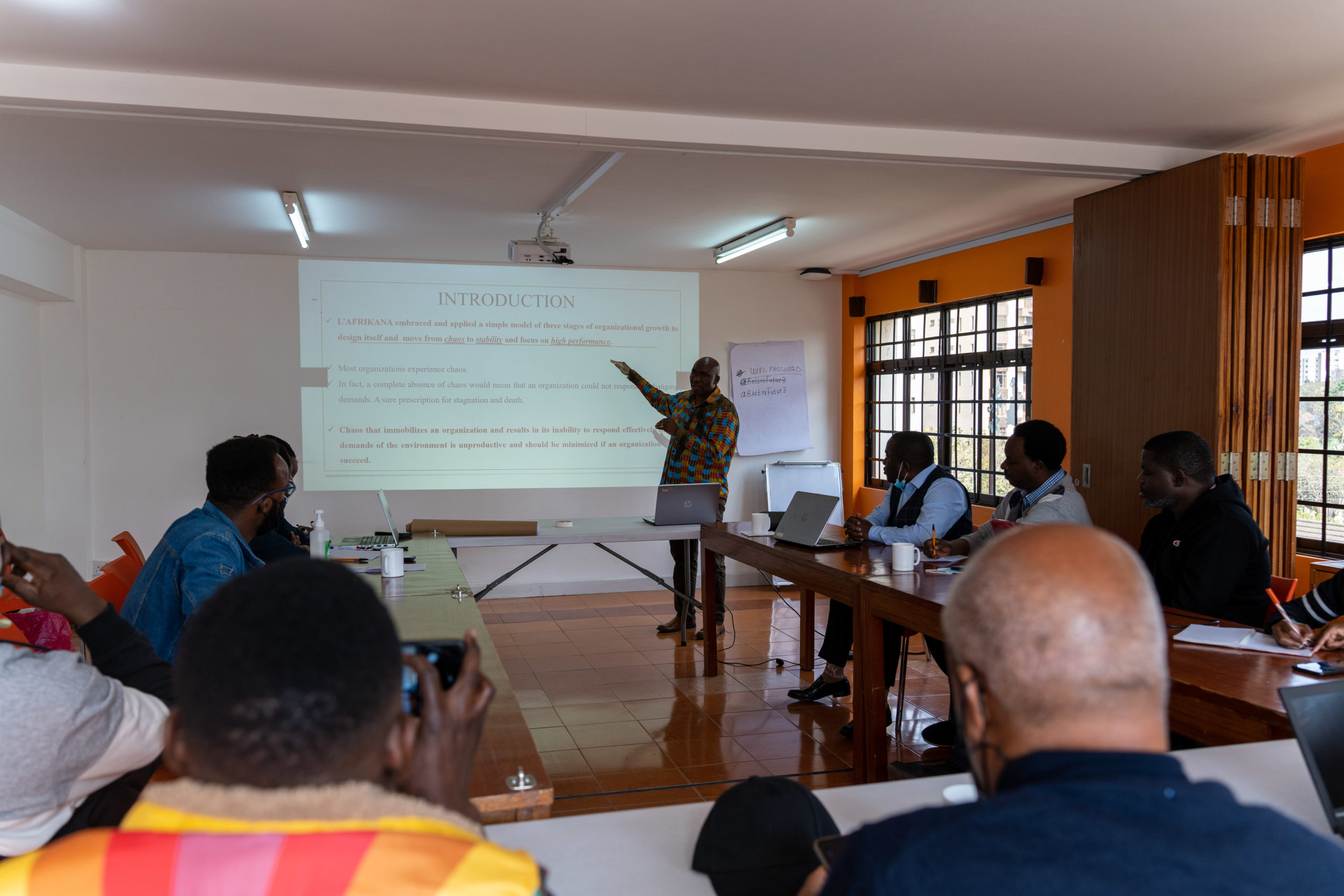In an effort to support and strengthen refugee-led organizations (RLOs) in Nairobi, Kenya, RefugePoint recently began bringing together leaders from several community-based organizations (CBOs) for Peer-to-Peer Learning Sessions. These sessions allow community-based organizations to connect with one another as well as local government agencies.
The Peer-to-Peer Learning Sessions also help to bridge the gap between NGOs like RefugePoint and refugees in the community. The hope is that through this field-building work, RefugePoint can help expand programs reaching refugee populations.
Community-based organizations in Nairobi are often led by refugees and provide vital services to urban refugees, including basic support (such as food, rent, and clothing); targeted support for women and girls; vocational and computer training; language, literacy, and cultural programs; business and career support; and safe housing for LGBTIQ+ refugees.
Mary Wangui, Training Manager in Nairobi, explains more about the Peer Learning Sessions in this interview. A community-based organization that joined the Peer-to-Peer Learning Sessions at RefugePoint’s office, Oak Solutions, agreed to be interviewed for this article. You will see a few questions that we asked them incorporated below.
Q for Mary Wangui, Training Manager in Nairobi: How did the Peer-to-Peer Learning Sessions come about?
A: We wanted a space where community-based organizations (CBOs), especially the refugee-led CBOs, could meet and freely express themselves, where they could interact with one another and also with agencies in Nairobi.
In addition, part of our field-building work involves sharing our learning with other organizations and we had wanted to work with CBOs for quite some time.
Q: What is the goal of the Peer-to-Peer Learning Sessions?
A: The goal of the Peer-to-Peer Learning Sessions is to provide a platform for Refugee-Led Organizations (RLOs) to network with other RLOs as well as agencies and partners working in their areas of interest. Through the Peer-to-Peer Learning Sessions, we hope to bridge the gap between NGOs and the beneficiaries we serve by engaging actively and as equal partners.
Q: What is a Peer-to-Peer Learning Session like?
A: A Peer-to-Peer session is a capacity-strengthening program for refugee-serving community-based organizations (CBOs) aimed at creating a friendly space for CBOs to network and learn from each other. We have designed the session in two parts, one where RefugePoint staff/invited guests facilitate training on a scheduled topic and another where CBO leaders share their experiences.
Q: In your opinion, how have the community-based organizations (CBOs) in the cohort benefited from the sessions?
A: The capacity-strengthening program has helped improve shared learning in topics identified by the CBOs at the start of the program. The CBOs have also had a chance to learn from each other and network, which builds long-term relationships between the organizations. Since the CBOs are in different growth stages, we have seen those that are more established mentor leaders in the startup stages.
This session has also opened doors for CBOs to openly provide feedback to RefugePoint on our programming. We have been lucky to have the country director step into a number of forums and directly interact with the leaders. This has helped us stay accountable to the communities we are working with. At the beginning of the year, the Peer-to-Peer cohort chose two representatives to form part of RefugePoint’s Oversight & Accountability Committee. This means the views of the larger refugee CBO community will be represented and will influence RefugePoint’s programming going forward.
Q: What would you like the future to look like in terms of these sessions?
A: We hope to continue to create this space where CBOs can freely express themselves, interact with us, and network amongst themselves. We hope to keep the capacity-strengthening sessions: they are meaningful and impactful on the CBOs’ day-to-day work. We hope, with additional resources, to provide additional mentorship to each of the CBOs according to their level of need and measure progress over time.
Now let’s hear directly from a community-based organization, Oak Solutions, about their experience with the Peer-to-Peer Learning Sessions.
Q for the community-based organization (CBO) Oak Solutions: What barriers to success does your organization experience?
A: The barriers we face are that we have limited fundraising opportunities and thus a lack of funds to support our programs. We also have a lack of technical capacity in program design. At the community level, there is overwhelming need, but there are not adequate referral mechanisms to established organizations that can help our beneficiaries. Another barrier is lack of exposure to organizations that we can team up with as implementing grassroots partners, and lack of visibility to our donors.
Q: What has your experience been in the Peer-to-Peer Learning Sessions?
A: The Peer-to-Peer Learning Sessions have helped Oak Solutions learn from other community- based organizations (CBOs) and establish relationships at our level. The sessions are inspiring as we meet peer organizations going through similar challenges but keeping the hope alive as we work with local solutions to our challenges. Thanks to the sessions we now have a call for funding that we expect will help CBOs. The sessions are informative, including sessions on the Refugee Act of 2021, and health during COVID-19 season.
